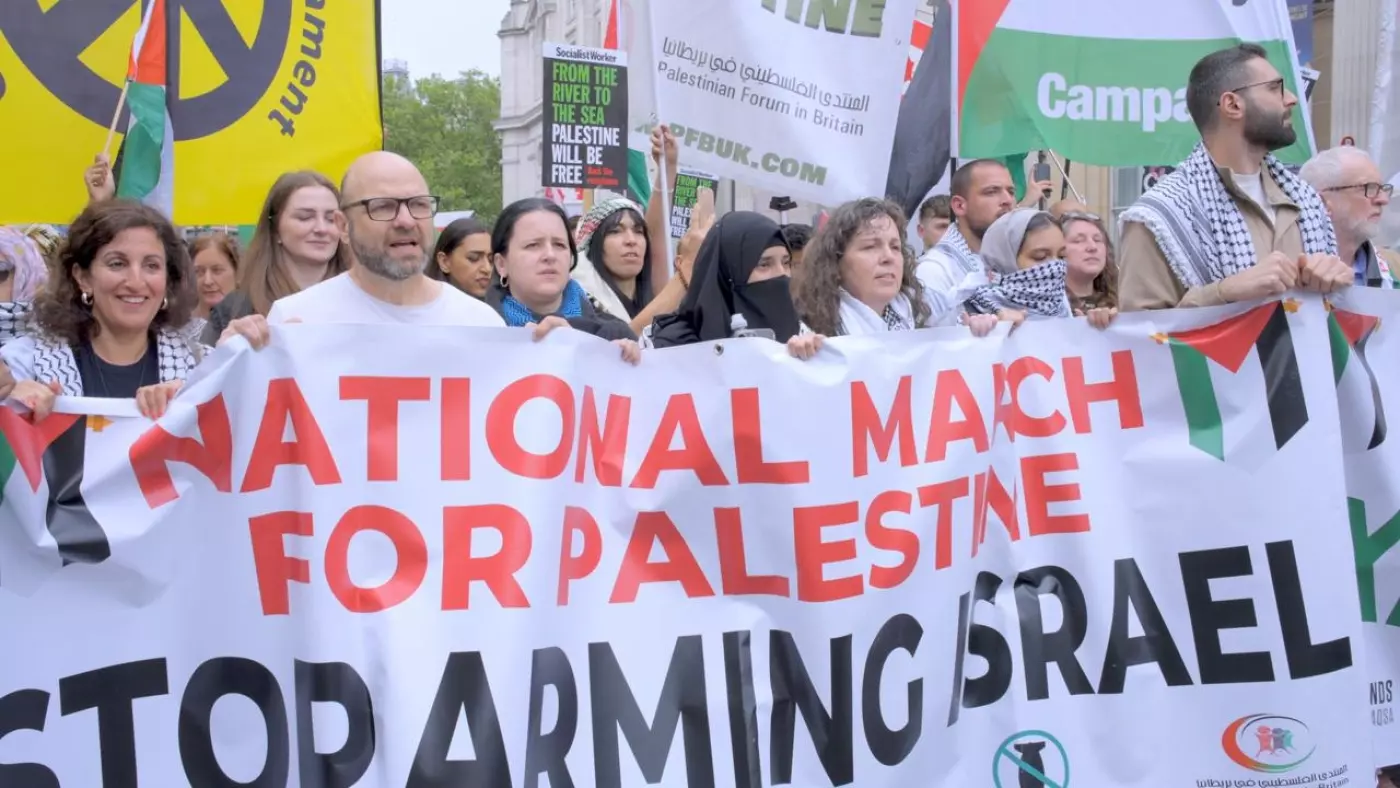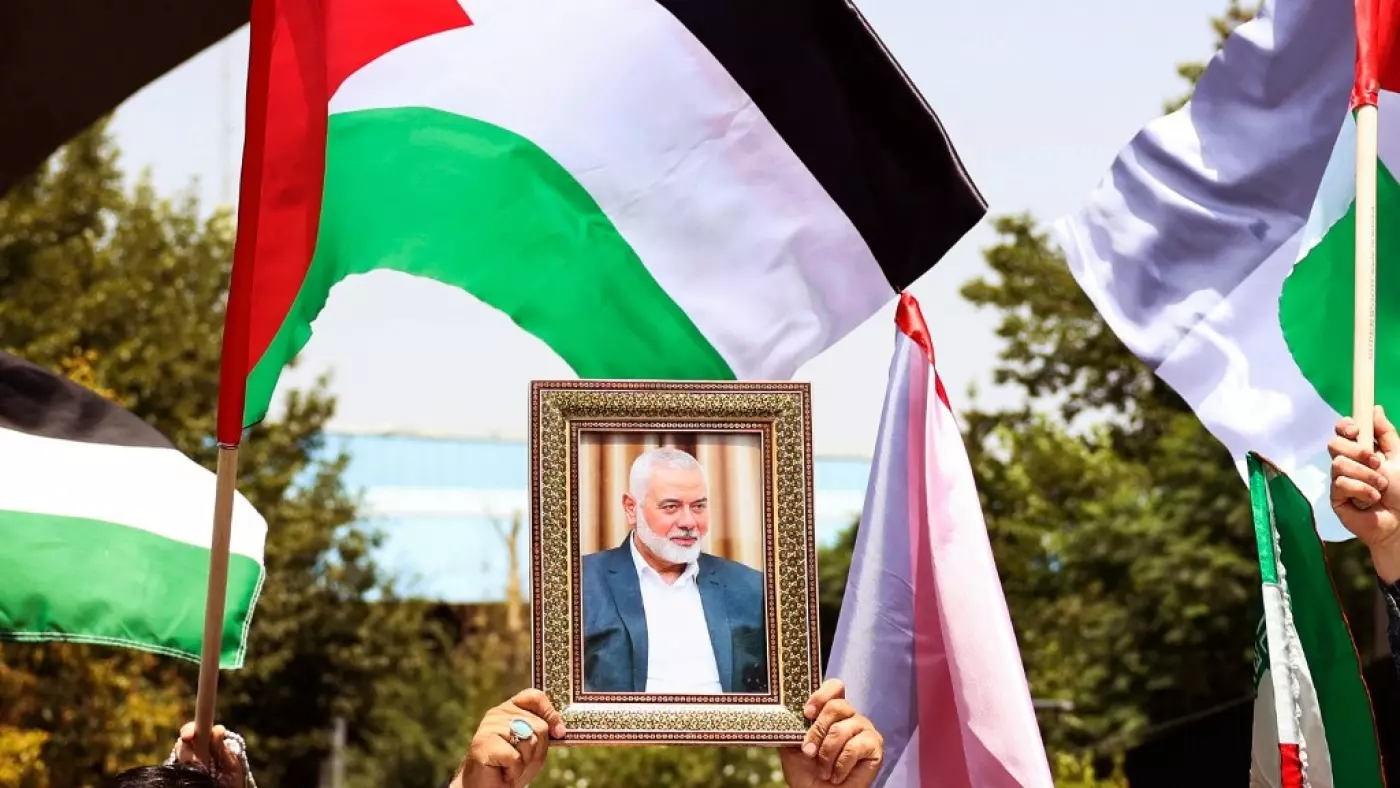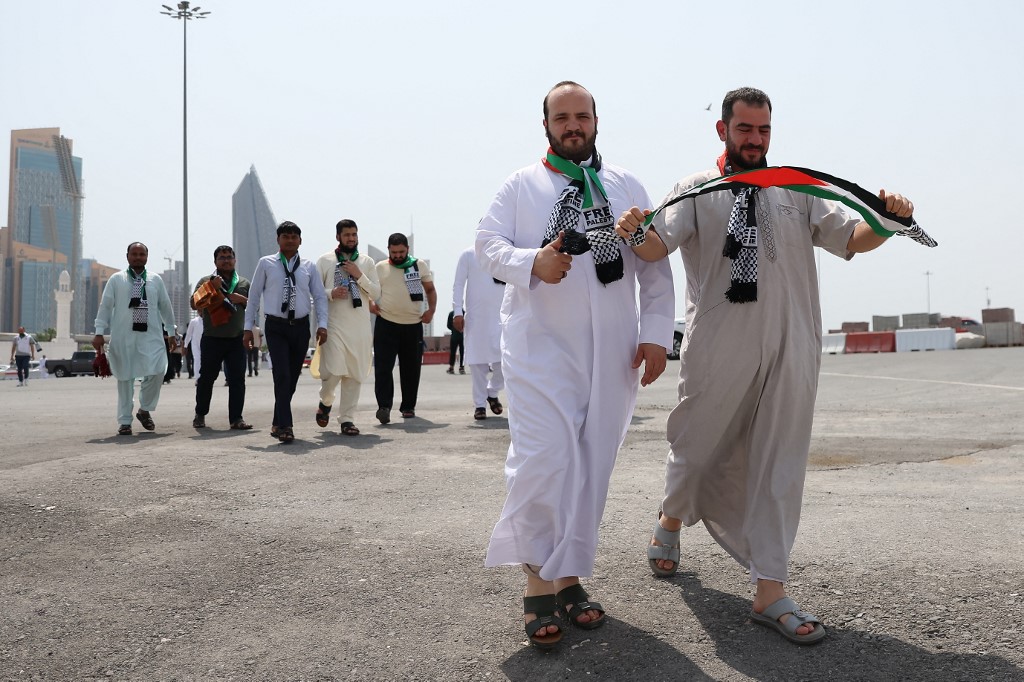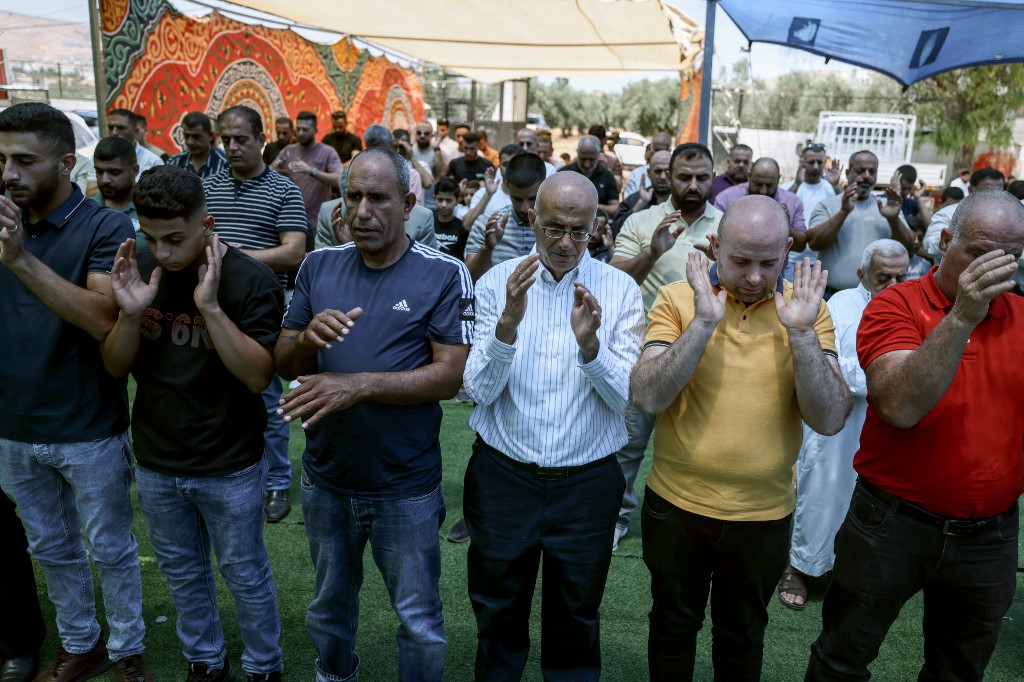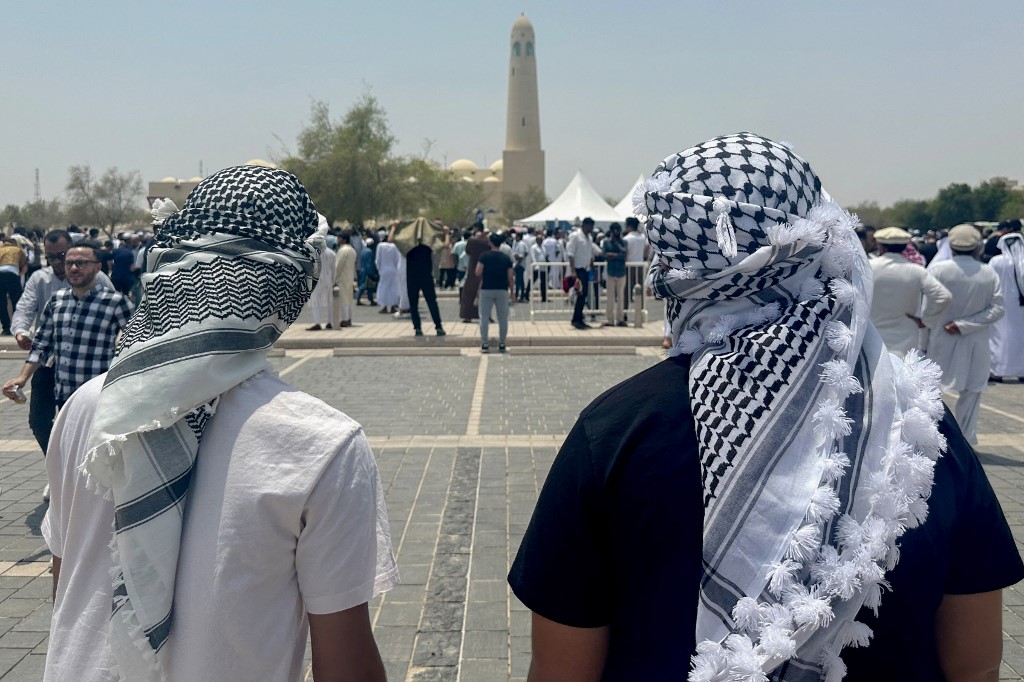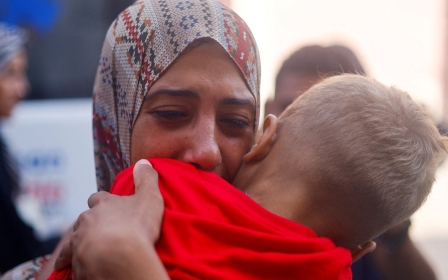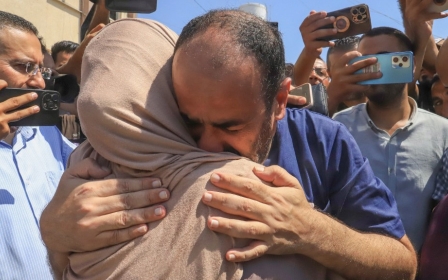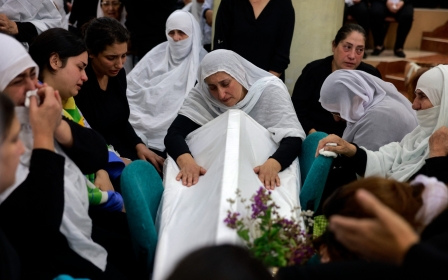Gaza live: Israel strike kills 30 Palestinians, mostly children
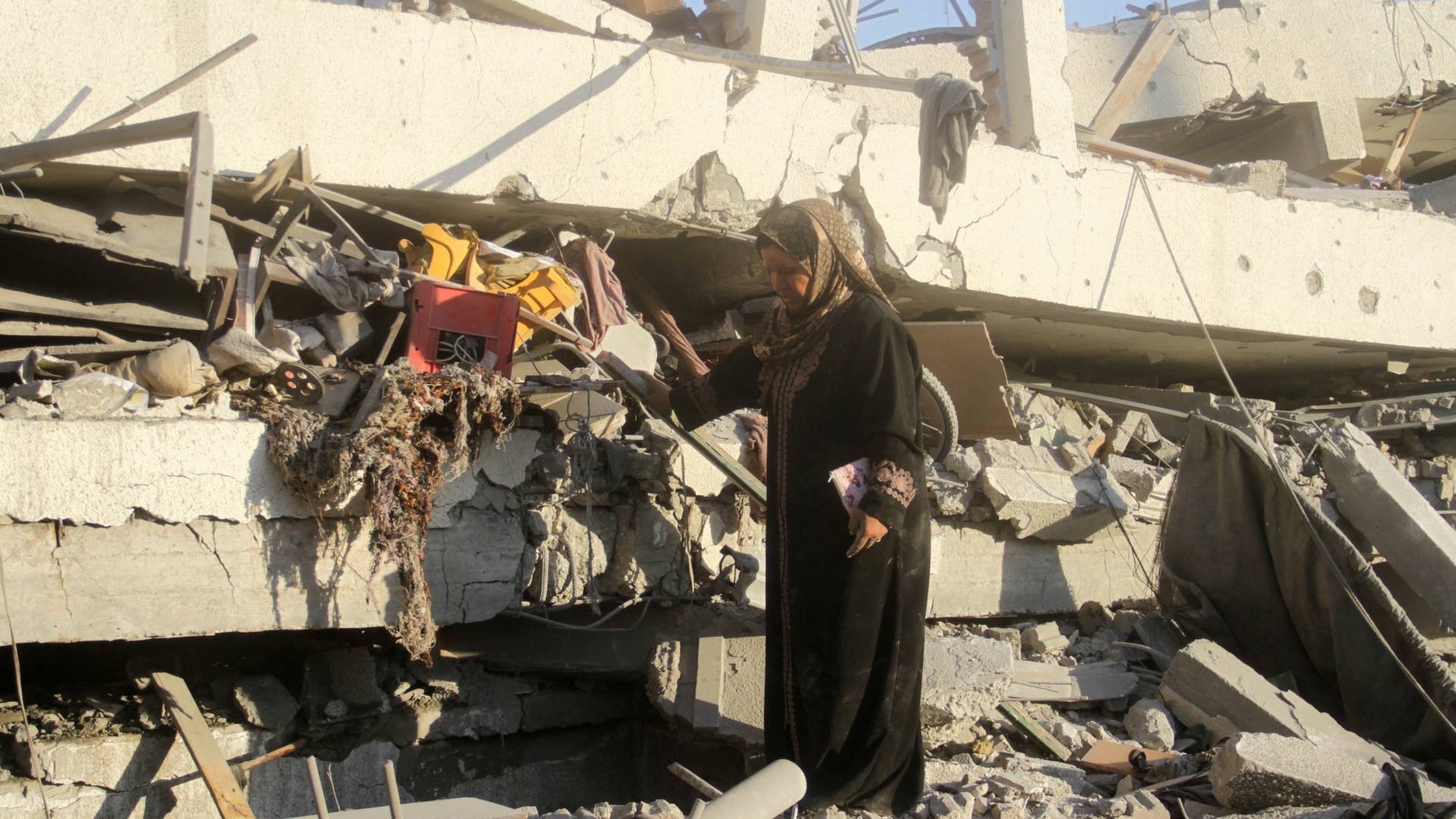
Live Updates
Unrwa, the UN’s Palestinian refugee agency, said that "the situation in the West Bank is worsening daily" amid power outages and water shortages at Nur Shams and Tulkarm camps.
The agency added that frequent raids by Israeli security forces “continue causing destruction and threatening the lives of people in the area”.
"This 'silent war' has to end," Unrwa said in a post on X.
The situation in the #WestBank is worsening daily. Nur Shams and Tulkarm camps are suffering from water shortages & electricity outages.
— UNRWA (@UNRWA) August 2, 2024
Israeli Security Forces’ operations continue causing destruction & threatening the lives of people in the area. This “silent war” has to end. pic.twitter.com/UFOUkTLOVP
On a small self-built stage at 6am in a leisure centre in Portslade, I stand side by side with the people and politics I felt compelled to stand against in the 2024 general election. We have all put ourselves forward for the people’s vote, and now the value of our voice is measured by a number. The precise number of people I represent at this moment is 3,048. I am disappointed.
I soon learned it is a high score for a very short political campaign with no party brand or media coverage. Gaza ceasefire candidates did best in areas with major Muslim populations, where many voters felt ignored by the main parties.
Hove and Portslade, where I stood, is a city with only a 2.2 percent Muslim population. Nationally, five independents were elected that morning and many thousands of votes went to other independents who stood for an end to Israel’s genocide, as well as to the Greens for their pro-ceasefire stance.
As I step out into the morning rain, exhausted from a relentless six weeks, I realise, with discomfort and appreciation, what Palestine has done for the British left. It is the beginning of a movement for justice and humanity that our establishment parties and media wish would go away. It won’t. It’s just beginning.
As I write this reflection, history has drawn the line sooner than we thought and it is no longer legally advisable for our government to stand against the long-overdue warrant for Netanyahu’s arrest.
A strange respect grew between some of us candidates over many hustings - the debates held during election campaigns. The Lib Dem candidate argued hard against Labour’s stance on selling weapons to Israel; while Reform’s candidate always shakes my hand as he walks past.
Both Reform and I take the voice of the people as our starting point, but Reform turns the blame on small boats, where the independent candidates are fighting the war machine which causes people to risk their lives travelling on small boats.
Even though the Greens did call for an immediate ceasefire, the reason I stood was not just relatability as a British Palestinian. Alone, our campaign foregrounded the Palestinian cause and named this as a genocide. For many of us, we are aware of the chasm in the emotional response and the option to otherise this horror and simply add it to a wish list of policies. That compartmentalised approach to Israel's actions in Gaza relegates its significance and reduces the humanity of its victims. Otherism is a building block of inequality and racism.
Read more: How Gaza sparked a new movement for justice in the UK:Opinion by Tanushka Marah
Israeli defence minister Yoav Gallant met with his British counterpart John Healey to discuss strengthening security ties and maintaining “intelligence cooperation”.
“I emphasized the importance of creating a coalition to defend Israel against Iran and its proxies – especially these days,” Gallant said in a post on X.
This comes amid rising regional tensions following the Israeli assassinations of Hamas political leader Ismail Haniyeh and Hezbollah commander Fuad Shukr. Iran has vowed a military response to their killings.
Hezbollah has claimed an attack on the Israeli military's al-Marj site in a statement on Telegram.
In a speech during the funeral of the group's commander Fouad Shukr, Hezbollah leader Hassan Nasrallah said that Israel has "crossed red lines" and should expect a "real, studied" response to Shukr's assassination.
The French foreign ministry has issued a warning to its nationals visting Iran, advising them "to leave as soon as possible" due to "the increased risk of a military escalation in the region."
Iran has pledged a "harsh response" to the Israeli assassination in Tehran of Hamas's political leader Ismail Haniyeh.
Air Algerie has announced that it is suspending its flights to and from Lebanon until further notice.
While the air line did not give a reason for the decision, it comes amid escalating regional tensions following the Israeli assassinations of senior Hezbollah and Hamas figures in Beirut and Tehran.
The air line's announcement follows similar moves by Kuwait Airways, Royal Jordanian Airlines, Air France, Lufthansa and Swiss International Air Lines.
A group of high profile Indian public figures, including Booker prize-winning author Arundhati Roy, has written to India's defence minister to demand a halt to arms exports to Israel, according to a report by Anadolu news agency.
The group, which included former Supreme Court and high court judges, economists and activists, wrote to Rajnath Singh demanding that India "immediately suspend its collaboration in the delivery of military material to Israel."
"Further, India must immediately make every effort to ensure that weapons already delivered to Israel are not used to contribute to acts of genocide or violations of international humanitarian law," it added.
The group also demanded that details of export licences remain in the public domain, pointing out that the details used to be available on a website and have subsequently been removed.
Symbolically, the death of Ismail Haniyeh is the heaviest loss that the Hamas leadership has faced since the assassination of its founder and spiritual leader, Ahmed Yassin, in 2004.
Although the damage is considerable, Hamas will not be destroyed by his absence. The group’s collective leadership is spread inside and outside of Palestine, with a structure designed to minimise the disappearance of any leader, however important they may be.
This pattern of assassination and renewal has been repeated over time. Eliminating individual leaders temporarily weakens the movement but consolidates its standing and popularity. Younger leaders step in, reorganisation takes place, and the group’s base of support widens.
A more important factor is the exacerbation of the causes behind the emergence of Hamas and other Palestinian resistance groups: the brutality of the ongoing Israeli occupation.
Israel fought against the Palestine Liberation Organisation (PLO) and Fatah, and after it largely neutralised both without ending its colonisation and occupation of Palestine, Hamas and Palestinian Islamic Jihad, which are proscribed as terrorist groups in the UK and other countries, came into being. The equation remains the same: military occupation breeds resistance.
Read more: Haniyeh killing: What will Hamas look like after the political leader's death? Opinion by Khaled Hroub
Israeli forces raided the village of Umm Safa, north of Ramallah in the occupied West Bank, resulting in two homes being set alight, Wafa news agency is reporting.
According to Marwan Sabbah, head of the Umm Safa Village Council, Israeli forces stormed the village, firing stun grenades and tear gas at residents, resulting in a fire that tore through two houses.
Three Palestinians have been killed and others injured in an Israeli strike near the Jordanian hospital in the Tel al-Hawa neighbourhood in southern Gaza City, Al Jazeera Arabic is reporting.
The assault is the third deadly attack on the city since this morning, with fatal strikes hitting several other neighbourhoods.
Earlier today, the Turkish embassy in Tel Aviv lowered its flag to half mast in tribute to Hamas political chief Ismail Haniyeh ahead of his burial in Qatar.
Turkey is observing a day of mourning on Friday for the killing of Haniyeh, as announced by President Recep Tayyip Erdogan on Thursday.
"In order to show our support for the Palestinian cause and our solidarity with our Palestinian brothers, a one-day national mourning has been declared tomorrow (August 2), Friday over the martyrdom of Hamas Political Bureau Chief Ismail Haniyeh," Erdogan said on X.
Israeli Foreign Minister Isreal Katz said on X that he has summoned Turkey’s deputy ambassador to Israel for a “stern reprimand” over the gesture.
Lowering official flags to half mast is traditionally a sign of respect, marking solemn occasions.
The Israeli military's attack on an aid convoy in April that killed seven workers in Gaza resulted from “serious military failures”, an Australian inquiry revealed on Friday.
On 1 April, Israeli strikes on three World Central Kitchen vehicles that had delivered 100 tonnes of food aid to a Deir al-Balah warehouse killed aid workers from Australia, Canada, Poland, the UK, the US and Palestine.
The government review examining Israel’s response to the fatal strikes attributed the attack to a failure by Israeli forces to follow procedures, citing “mistaken identification and decision-making errors, likely compounded by a level of confirmation bias”.
Former Australian Defence Force chief Mark Binskin, appointed special adviser on the matter, said he did not believe Israeli forces "knowingly or deliberately directed against the WCK”.
Read more: 'Serious failures' by Israeli forces caused aid worker killings: Australian inquiry

Thousands gathered at a mosque in the Qatari capital for the funeral of Hamas leader Ismail Haniyeh, who was killed in an Israeli attack in Tehran on Wednesday.
Large crowds attended Friday prayers at Doha's Imam Muhammad bin Abdul Wahhab Mosque, the largest mosque in Qatar, followed by Haniyeh's funeral.
Heavy security measures were in place at the mosque, Al-Jazeera reported, with attendees searched and phones prohibited during the service.
Dozens of foreign dignitaries and representatives from Palestinian groups and factions were among those in attendance.
This includes senior Fatah figure Mahmoud al-Aloul, in what will be seen as a show of unity given the over 17-year fallout between Hamas and Fatah.
Read more: Thousands gather in Doha for Hamas leader Haniyeh's funeral prayer

Flags across Turkey have been lowered at half-mast ahead of Friday prayers in respect for Hamas’s Ismail Haniyeh who was assassinated in Tehran earlier this week.
Turkey is observing a day of mourning on Friday over the death of Hamas' political chief, President Recep Tayyip Erdogan announced on Thursday.
Turkiye lowers flags to honor the memory of Ismail Haniyeh, Hamas' political bureau chief, who was assassinated by Israel. pic.twitter.com/Om4WtPAzbS
— Quds News Network (@QudsNen) August 2, 2024


